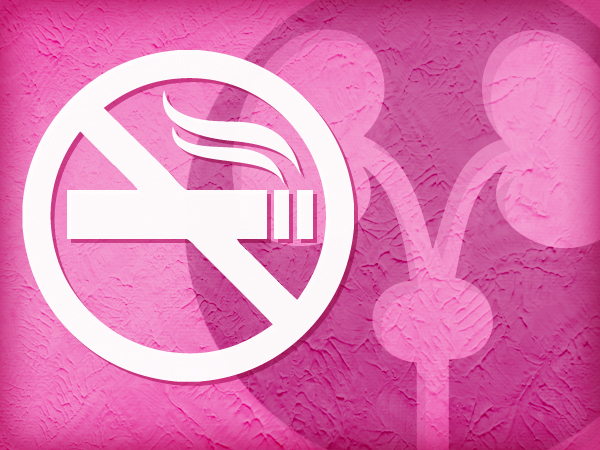The renal cost of tobacco

The list of smoking-associated conditions continues to grow, according to UMMC researchers.
The study, published in the Journal of the American Heart Association on May 25, found that African-Americans who currently smoke cigarettes had an 83 percent higher incidence of rapid renal function (RRF) decline than never-smokers.

“Cardiovascular and kidney diseases are closely linked, but few people are aware of the impact of smoking on kidney function,” said Dr. Michael Hall, assistant professor of medicine, cardiologist and lead study author. The study is among the first to examine the relationship between smoking and kidney dysfunction in African-Americans.
Hall and colleagues followed 3,648 members of the Jackson Heart Study, the largest prospective cohort study of African-American cardiovascular health.
They estimated glomerular filtration rate (GFR) at two visits several years apart. Glomeruli are the small blood vessel bundles that filter blood through the kidneys.

“The function of the kidney is to clean the blood,” said Dr. Luis Juncos, professor of medicine, nephrologist and study co-author. “If the kidneys don't have enough filtration, the blood cannot be adequately cleaned.”
People with RRF decline had a 30 percent or greater decrease in GFR between the visits. This puts a person at risk for chronic kidney disease (CKD) and end-stage renal disease (ESRD).
People who smoked at least 20 cigarettes daily, a standard pack, had RRF decline 97 percent more often than never-smokers. Those who smoked less than a pack daily experienced RRF decline 75 percent more often than never-smokers.
“There does seem to be a dose-dependent effect, meaning patients who smoke more are at higher risk for having worsening kidney injury over time,” Hall said.
African-Americans have four times the risk of ESRD than whites, attributed to higher rates of high blood pressure and diabetes. However, people of all races are susceptible to smoking's health risks.
“It's important for those who have risk factors for kidney disease to realize that smoking is a significant risk factor and could ultimately end up leading to dialysis,” Hall said. “Once you have kidney disease, it exacerbates the risk of cardiovascular diseases.”
Hall and colleagues also measured C-reactive protein, a marker for systemic inflammation. They found that current smokers had 38 percent more of the protein in their blood than never-smokers. This could point to the way smoking affects the kidneys, but the study did not establish a cause-and-effect relationship.
“There are numerous ongoing studies, including our own, that examine potential mechanisms by which smoking and nicotine cause renal injury, as well as whether it is reversible and how to best treat it,” Juncos said.
The study also pointed to the benefits of quitting. Past smokers had a similar risk of RRF decline to never smokers when adjusted for age, sex and weight. This means it may be possible for past-smokers to recover kidney function, Hall says. Although the study did not account for the length of time since quitting, future studies will.
The American Heart Association says that a former smoker's excess risk of coronary heart disease decreases 50 percent one year after quitting. Their risk of developing several kinds of cancers decreases 50 percent five years after quitting. After 15 years, past-smokers and never-smokers have the same risk of coronary heart disease.
The study's findings can also inform tobacco policy and regulation.

“Understanding how tobacco is adversely associated with rapid renal function decline in African-American users has implications for product warnings and campaigns directed towards at-risk individuals,” said Dr. Thomas Payne, director of the UMMC ACT Center for Tobacco Treatment, Education and Research and study co-author.
Hall recommends that physicians consider smoking a risk factor for CKD and continue to ask patients about their cigarette use.
“We should be aggressive with screening patients who have risk factors for kidney disease by finding out if they smoke and, if so, encouraging them to quit,” Hall said.
The National Institutes of Health, the American Heart Association and the FDA Center for Tobacco Products funded the study. Co-authors include researchers from Vanderbilt University, the University of Louisville and the University of Washington.


